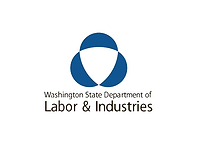Holding Steady
In Unusual Twist, Roofers Leary of Lowering Workers' Comp Rates
Florida Roofing and Sheet Metal Contractors Association leaders urge state regulators to freeze the roofing industry’s rates versus approve a decrease taking effect in 2025

Leaders of the Florida Roofing and Sheet Metal Contractors Association urged state regulators to forego a proposed workers’ compensation rate cut at a hearing on Oct. 15, citing concern over fund stability in the aftermath of two hurricanes. Regulators did not indicate when they would act on the proposal.
— Image courtesy of Instagram
2 MIN READ
Leaders of the Florida Roofing and Sheet Metal Contractors Association exercised prudence on Tuesday after urging state regulators to freeze the roofing industry’s workers' compensation insurance rates rather than approve a decrease that would take effect in 2025.
Arguments came during a hearing on Oct. 15 by the Florida Office of Insurance Regulation to consider a proposal to reduce employer rates by an average of 1 percent.
FRSA leaders voiced a need for stability and worried about a potential increase in future claims, pointing to issues like heavy demand for repairs following the recent hurricanes and an increase in young, inexperienced workers. The trade group has a self-insurance fund.
“FRSA believes that considering recent hurricanes and those over the past few years, we will begin to see more inexperienced labor hired as contractors struggle to keep up with the growing demand for work,” Lisa Pate, the association’s executive director, said. “Many older workers are retiring, and the pull for younger employees who want to work on roofs is dwindling; this trend will place more inexperienced workers on roofs and job sites" and put contractors at additional financial risk.
 “It’s only a matter of time before injuries and claims increase and rates swing in the opposite direction; consistency in the rates will help mitigate this exposure,” Pate added.
“It’s only a matter of time before injuries and claims increase and rates swing in the opposite direction; consistency in the rates will help mitigate this exposure,” Pate added.
The National Council on Compensation Insurance, a rating and data collection bureau specializing in workers' compensation, proposes yearly rates to state workers’ compensation insurance regulators. In August, NCCI proposed an overall average 1 percent decrease for 2025, seeking to continue a string of years of reduced rates.
During Tuesday’s hearing, NCCI officials presented its 2025 proposal. NCCI’s August summary described Florida’s workers’ compensation system as “healthy,” writing that while “consumer inflation has been elevated, the inflation for workers’ compensation medical costs remained stable.”
It also said that a combination of continued claims, such as “frequency declines and moderate benefit costs at or below the level of wage growth, have continued to put downward pressure on overall [workers’ compensation] system costs relative to collected premiums.”
Tuesday’s hearing came less than a week after Hurricane Milton landed as a Category 3 storm in Sarasota County, causing property damage across the state. Milton hit less than two weeks after Hurricane Helene hit Florida’s Big Bend region and then caused widespread damage throughout the Southeast U.S.
“Our experience has taught us that immediately after a hurricane, the large influx of inexperienced workers into potentially insecure environments can quickly lead to an increase in claims costs,” Debbie Guidry, administrator of the association’s self-insurance fund, told NPR, which first reported on the hearing.
It was unclear when regulators would decide whether to approve the NCCI proposal or require changes.
Looking for a reprint of this article?
From high-res PDFs to custom plaques, order your copy today!





.jpg?height=200&t=1740697205&width=200)
